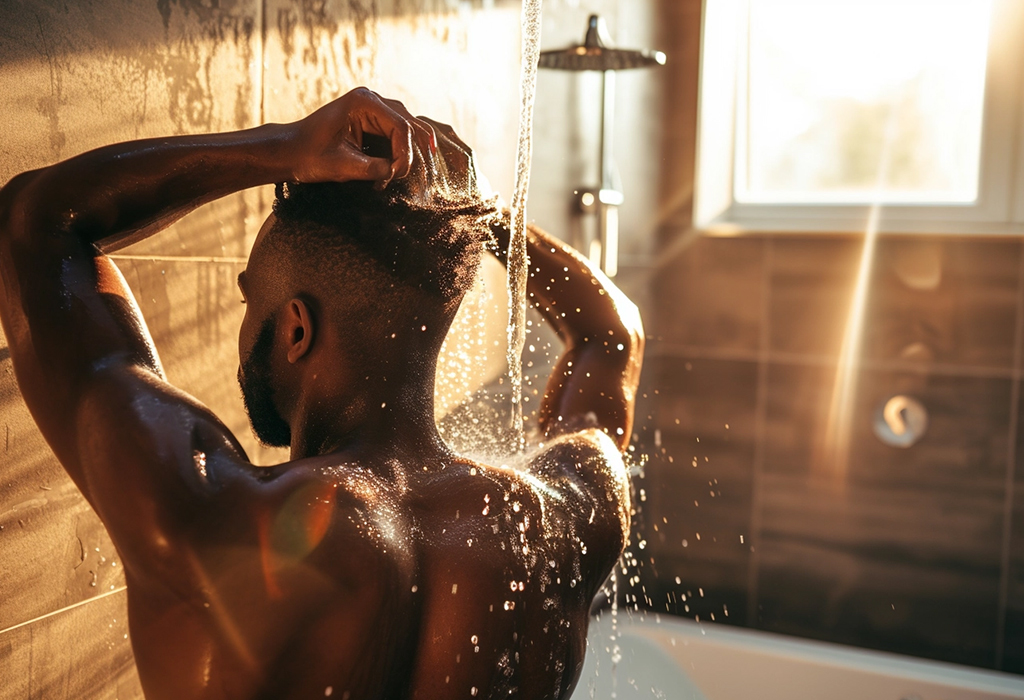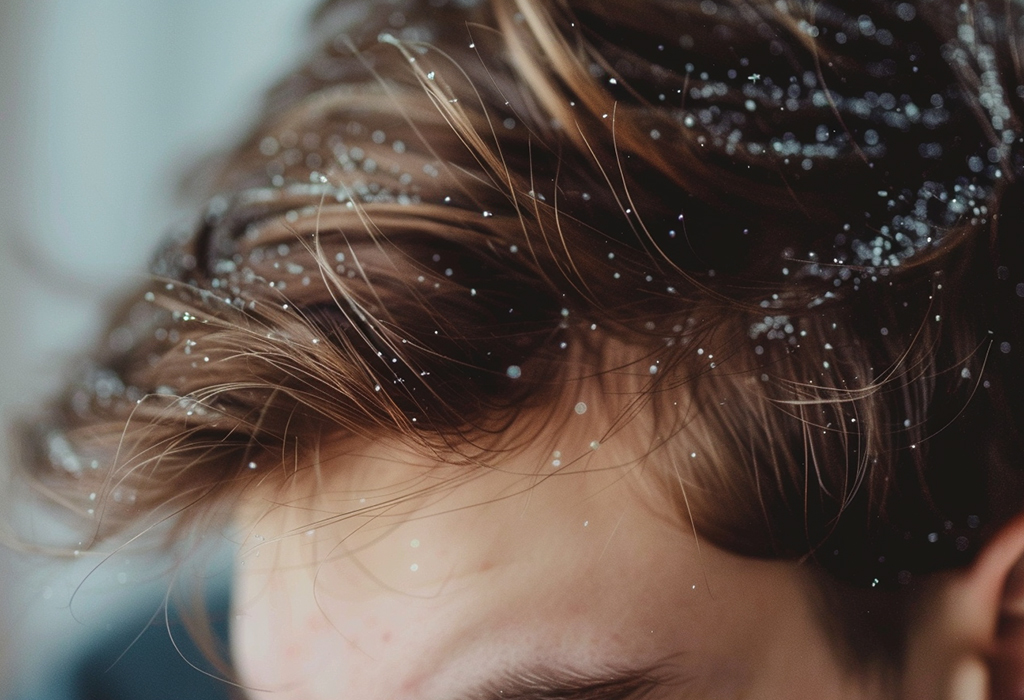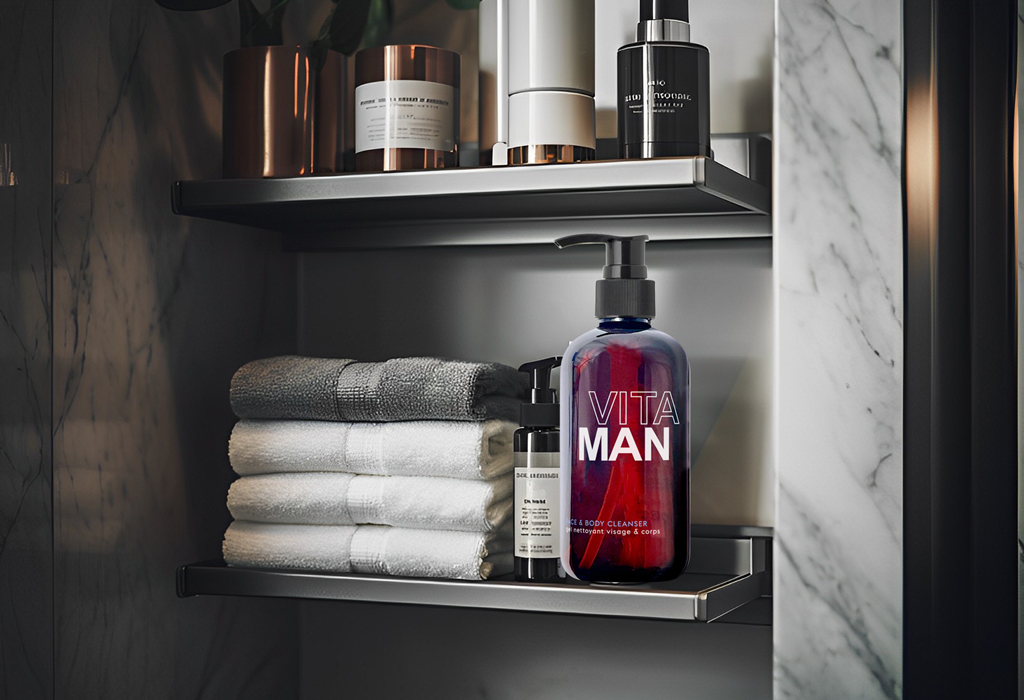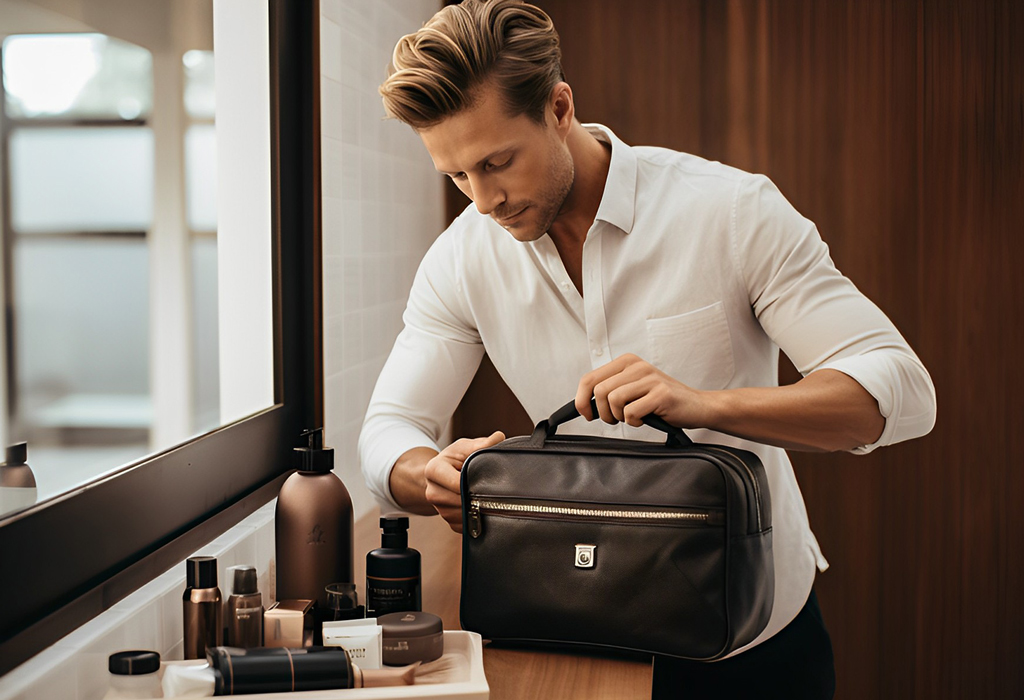

It’s embarrassing when a woman runs her hands through your hair, and those white particles start falling out.
Most guys will suffer from dry scalp and dandruff at some point in life, so there’s no shame in admitting you’ve got a problem. It’s important to seek a solution, as the last thing you want is flaky head snow ruining your chances of intimacy.
In today’s article, I’ll discuss the easiest ways to treat a dry scalp and regain confidence in your hair.
- What Causes Dry Scalp And Dandruff?
- How Do I Know If I Have Dry Scalp Or Dandruff?
- Can Dry Scalp Cause Hair Loss?
- How Can I Hydrate My Scalp At Home?
- What Products Are Best For Dry Scalp?
#1 What Causes Dry Scalp And Dandruff?


Dandruff and dry scalp can be caused by several things, from simple neglect to more serious medical conditions.
It’s important to remember that dandruff is a common issue, nothing more than dead skin cells that have accumulated on the scalp. It can be caused by anything that irritates or dries out the skin, including dandruff shampoo, certain hair treatments, harsh weather conditions, and even stress.
A dry scalp, on the other hand, is usually caused by a lack of moisture. This can be due to harsh chemicals, hot showers, insufficient conditioner, or even climate change.
Luckily, there are several dandruff treatments and dry scalp remedies that can help alleviate these problems.
I’ll discuss specific products later, but in general, you should look for dandruff shampoos that contain zinc, selenium sulfide, or ketoconazole.
These ingredients help control the fungus that causes dandruff and can also soothe the dry, irritated skin that accompanies it.
You’ll also want to make sure you’re using a well-balanced, natural scalp treatment that doesn’t strip your hair of its natural oils.
Lastly, drink plenty of water and eat a healthy diet full of vitamins and minerals to keep your skin and scalp healthy from the inside out.
#2 What Are The Symptoms Of Dry Scalp And Dandruff?


Let’s face it: nobody wants dandruff. It’s unsightly, it’s embarrassing, and it can be challenging to get rid of.
But how do you know if you have dandruff or just a dry scalp? And once you’ve figured that out, what are the best dandruff causes and treatments?
To help you out, here are some of the most common symptoms and signs of dandruff:
- Flakes of skin in your hair or on your shoulders
- Itching or irritation of the scalp
- Redness or inflammation of the scalp
- Oily or greasy scale on the scalp
- Flaking skin on other body parts, such as the eyebrows, beard, chest, or back.
If you’re experiencing these symptoms, it’s time to look for dandruff causes and treatments.
Dandruff can be caused by a variety of factors, not just dry skin. These include psoriasis, seborrheic dermatitis, eczema, fungus, and even poor hygiene.
Unfortunately, there is no one-size-fits-all solution for dandruff. The best treatment is to determine what is causing it and then treat the problem at the source.
However, there are ways to help lessen the symptoms of dry scalp and dandruff. Natural remedies such as coconut oil have proven effective dandruff treatments.
While coconut oil can help soothe the scalp, reduce inflammation, and moisturize the skin, it’s important to note that it should not replace medically prescribed treatments. However, it can be a helpful temporary solution while you wait for professional advice.see your doctor or local pharmacist for more professional advice and guidance.
#3 Can Dry Scalp Cause Hair Loss?


While dandruff is often nothing more than a nuisance, it can sometimes lead to more severe problems.
In extreme cases, dandruff can cause hair loss.
This is because the flakes of skin that are a hallmark of dandruff can obstruct hair follicles, potentially halting the growth of new hair. While this doesn’t necessarily mean permanent hair loss, it can result in temporary hair shedding and thinning.
Fortunately, several dandruff treatments can help to prevent this from happening.
Dandruff can also be a sign of an underlying skin condition, such as eczema or psoriasis.
If left untreated, these conditions can lead to permanent hair loss.
So get a check-up ASAP if you experience any of the symptoms of dandruff and dry scalp.
While dandruff is typically not a major issue, it’s crucial to seek treatment if you’re experiencing excessive shedding or if over-the-counter remedies aren’t providing relief. This proactive approach can help prevent potential complications.
#4 How Can I Hydrate My Scalp At Home?


Let me start by saying this – nothing that I mention in this section of my article should be used as an alternative to medical dandruff and dry scalp treatments.
While I’ve researched some of the best treatments for dandruff and dry scalp, it’s important to remember that we are not WebMD. Seeking the help of a professional if you are experiencing serious symptoms of this medical condition is crucial.
That being said, you can try some home remedies that are simple and accessible while you wait to see a specialist about dandruff causes and treatments. If buying products isn’t the way you want to go, there are many ways to treat your dry scalp, such as simply looking in your pantry.
These include :
- Applying apple cider vinegar to your scalp: This will help restore your scalp’s pH balance. Mix one part apple cider vinegar with one part water.
- Soaking your hair in a mixture of two eggs and olive oil: This will help moisturize your scalp. Whisk the ingredients together and apply them with your hands.
- Rinse with cold water and shampoo as normal. Add a few drops of dandruff-fighting essential oil to your shampoo. This will help soothe your scalp.
- Using coconut oil to hydrate your scalp: This will help moisturize your scalp. You can do this by massaging a small amount of coconut oil into your scalp.
Remember, if you are experiencing dandruff symptoms, seek medical help as soon as possible. No home remedy is as effective as legitimate medication prescribed by a medical professional.
#5 What Products Are Best For Dry Scalp?


Many unmedicated products can help fight and soothe dry scalp and dandruff symptoms. Though dandruff causes and treatments should be medically based, other methods can alleviate the problem.
When it comes to ‘over-the-counter’ solutions or shop-bought products, always discuss their application with your local pharmacist. While they don’t hold an MD, pharmacists do have a solid knowledge of how different medicines and drugs work. Seeking their advice empowers you to find the right product for you.
In short, dry scalp and dandruff products fall into 3 main categories:
Shampoos:
These are products that are specifically formulated to prevent and treat dandruff. The most common dandruff-fighting ingredient in these shampoos is selenium sulfide.
Other ingredients include:
- zinc pyrithione
- ketoconazole
- salicylic acid
Conditioners:


Dandruff can sometimes be caused by dryness, so using a conditioner that is specifically designed for dandruff can help to hydrate your scalp.
These usually contain one of the following ingredients: selenium sulfide, ketoconazole, zinc pyrithione, coal tar, and salicylic acid.
Oils and lotion treatments:
These can help moisturize your scalp and are often used with dandruff shampoos or conditioners.
When choosing a product, always read the label carefully. This will ensure that you are not allergic to any ingredients and are using the product correctly.
It’s also a good idea to look for treatments that contain natural ingredients such as argan oil, coconut oil, and aloe.
If you need help deciding which product to use, speak to your doctor or pharmacist. Remember, dandruff is usually a manageable problem. However, if you are experiencing excessive shedding or if over-the-counter medications are not effective, seek professional medical advice.